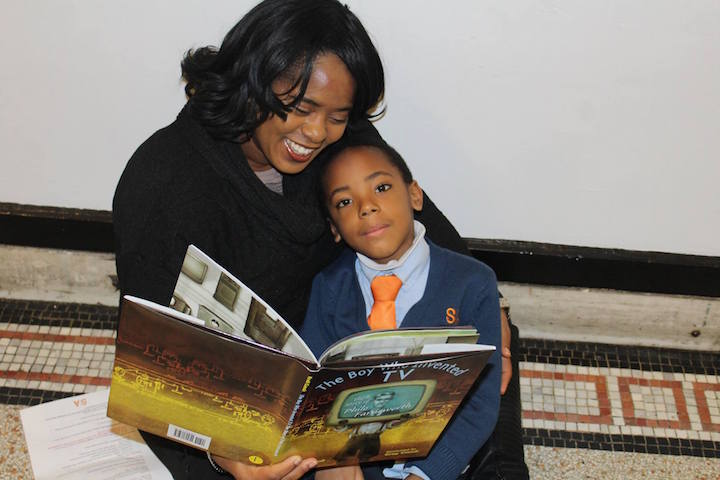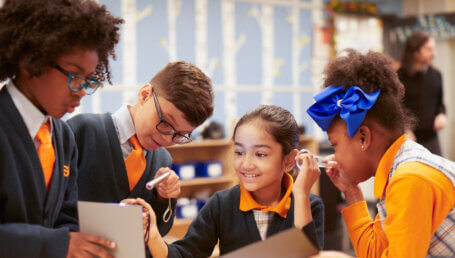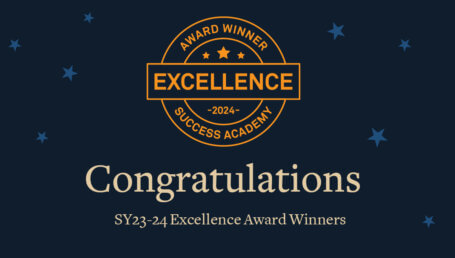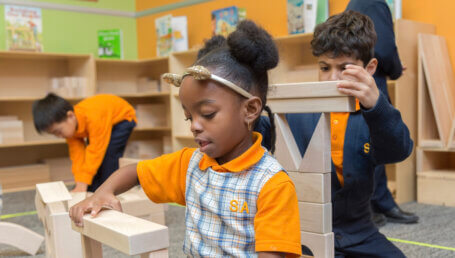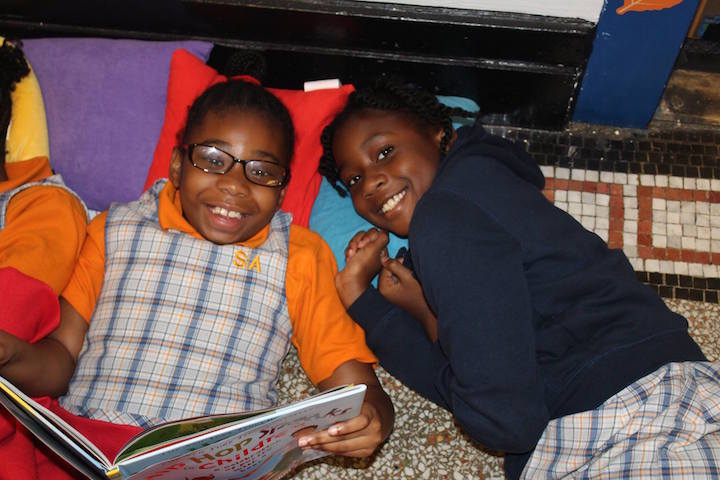
At Success, we believe that children who love reading and select books for themselves drive their own learning and become lifelong readers. There is power and possibility in falling in love with books!
Outside of school, children typically cannot acquire new books without their parents’ help. Families play an important role in opening the world of independent reading to their scholars. They can make a tremendous impact by talking to children about books, asking about what they are reading, reading with them, and providing opportunities for their scholars to visit bookstores and libraries.
On October 14, we traveled to the beautiful library at Success Academy Washington Heights for the school’s literacy fair. There were three goals for the event: (1) to get parents excited about reading with their child, (2) to provide insight into the literacy curriculum that scholars encounter every day at school, and (3) to offer guidance for parents to support their scholars’ reading at home. Other schools in the network also hosted literacy fairs this fall; each school added its own touch, but the goals were the same.
At SA Washington Heights, the two of us were stationed at the “Book Whisperer” booth. We were surrounded by books, and the air was thick with the smell of freshly popped popcorn—hallmarks of a true literacy fair! We were delighted with the enthusiastic parent turnout; after meeting with teachers in the classroom for a session on shared texts, families filled the library to examine books that we read aloud to kids and that scholars can read independently. We had conversations about these books, and families left better prepared to support their children with reading at home.
Below are some of the most frequently asked questions we heard from parents at the fair.
Q. What’s the difference between the books that I’m reading to my child and what my child should be reading independently?
A. You should be reading a mix of fiction and nonfiction to your child, books filled with interesting information and rich character development that he or she would not necessarily be able to read alone. Your child should be independently reading books from his or her book baggies—these are books at your scholar’s reading level that your child and his or her teacher have thoughtfully selected.
Q. How can I help my child find books at his or her reading level?
A. First, check with your child’s teacher. Make sure you know your scholar’s reading level and what books at that level look and sound like. Every Success Academy teacher has a list for families that includes books available at most bookstores and libraries. When you visit libraries and bookstores, ask questions! Come prepared with your knowledge of what your child likes, and give the librarian or clerk as much information as possible: what types of books your child gravitates toward, what he or she doesn’t like, and what specific books or series are too easy or too hard. Once you’ve settled on a few options, have your child read the first few pages out loud and ask a question or two to make sure he or she understands.
Q. My scholar is stuck in a reading rut. How do I get my child interested in different types of books?
A. Ask parents of other children in the class what series or books their scholars are reading, and play to your child’s interest while expanding on his or her knowledge base. Children who love fun and sassy girl characters who often find themselves in hot water will probably enjoy the Ivy and Bean series. If they’ve already read Ivy and Bean, Clementine will make them laugh out loud. Scholars who love a good mystery have probably read a ton of the Magic Treehouse series; try The Time Warp Trio next. It’s okay to be a little flexible with scholars’ reading levels in order to match their interest. You should use the reading level as a guide; the most important thing about independent reading is that the child is reading and loving it! Remember, children will always be more motivated to read when they’ve picked out the book themselves.
Q. What’s a good balance between fiction and nonfiction?
A. Aim for a 50/50 balance. If your scholar gravitates more toward fiction, explore the nonfiction section of your library or bookstore together. There are some amazing nonfiction books with compelling plotlines and characters and beautiful illustrations that might catch your scholar’s eye!
Most importantly, listen to your scholar! Find out what your child likes. The ultimate goal is that your scholar love reading, so let your child guide you to intriguing books while you introduce new genres and topics.

